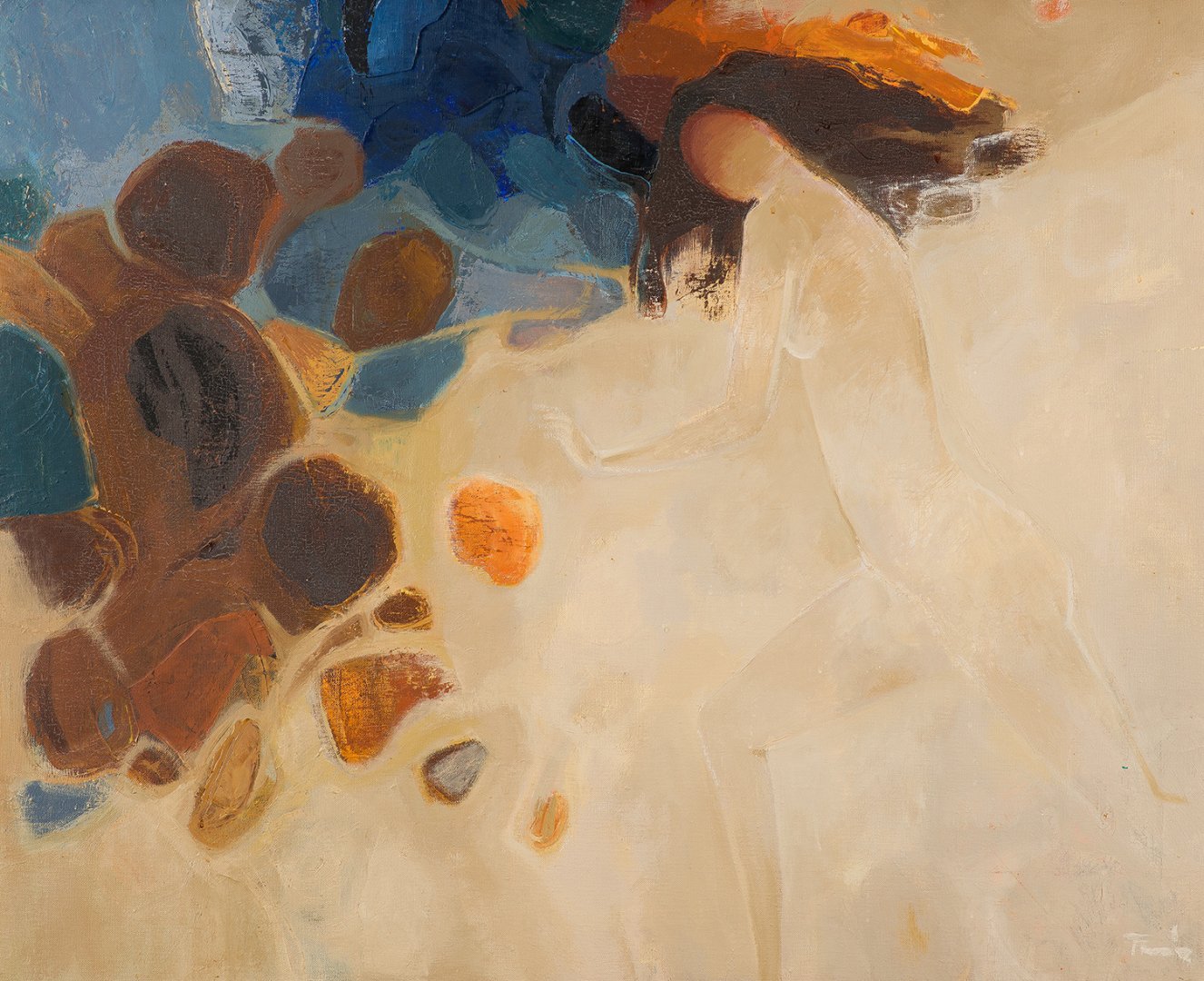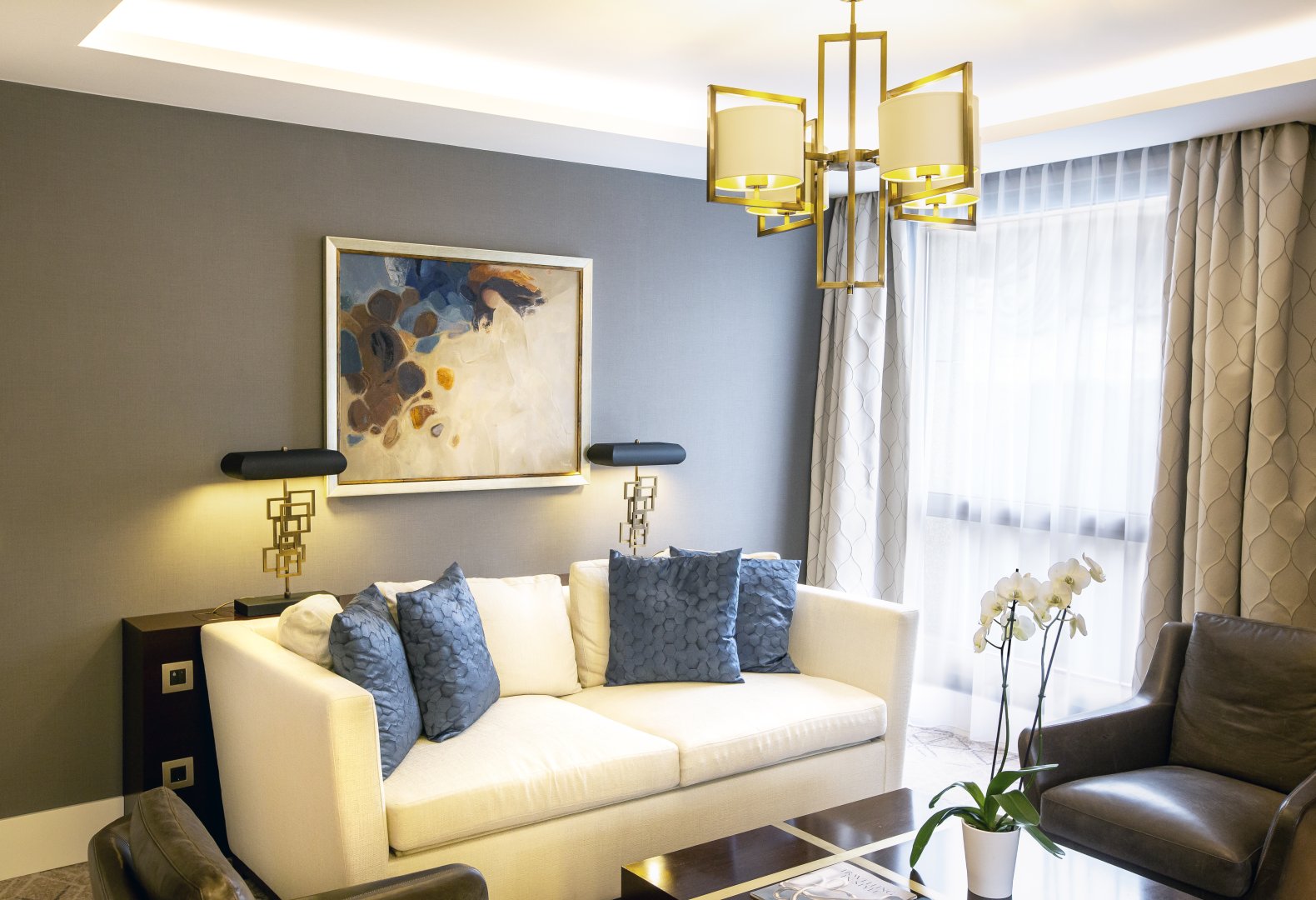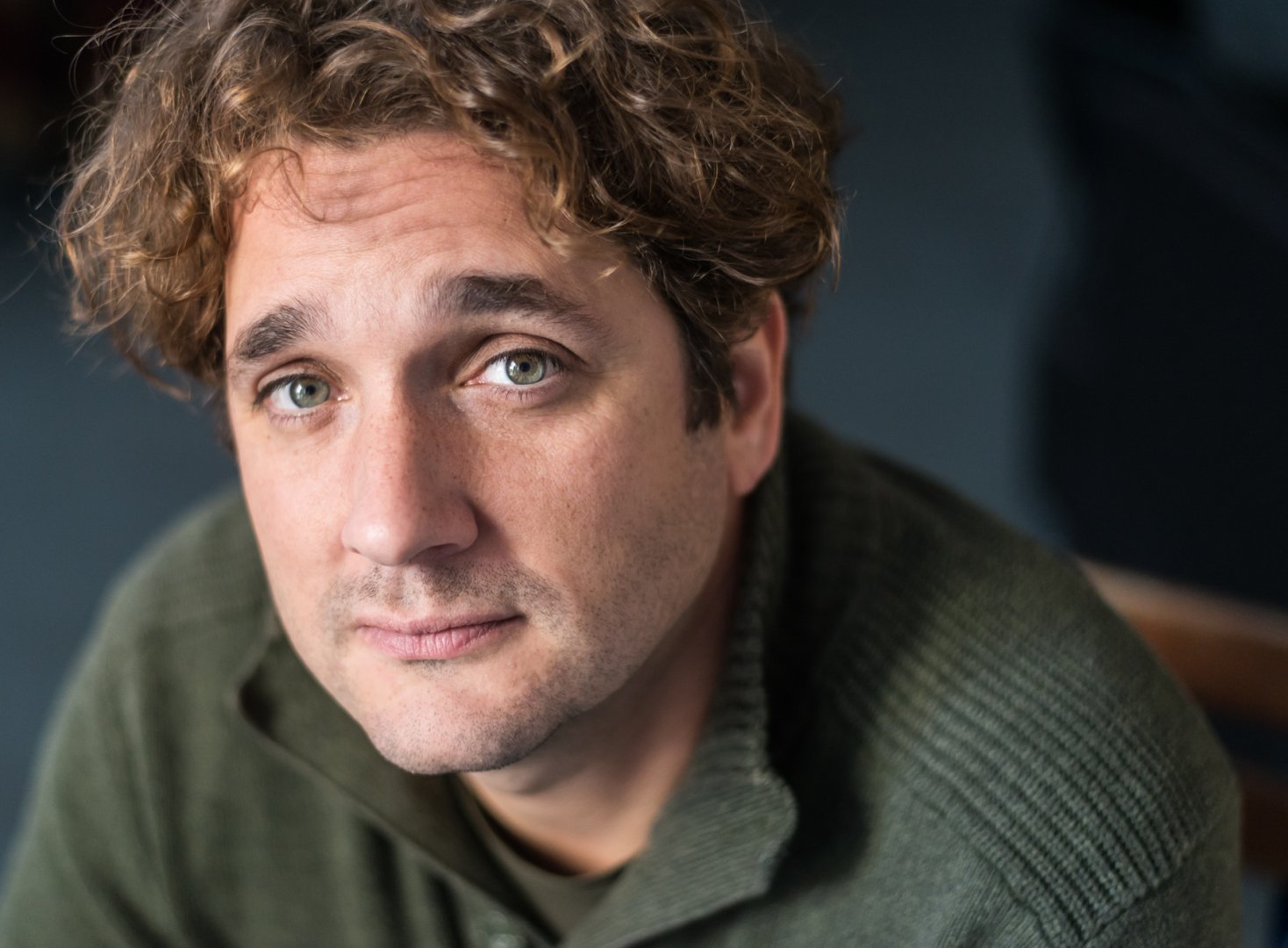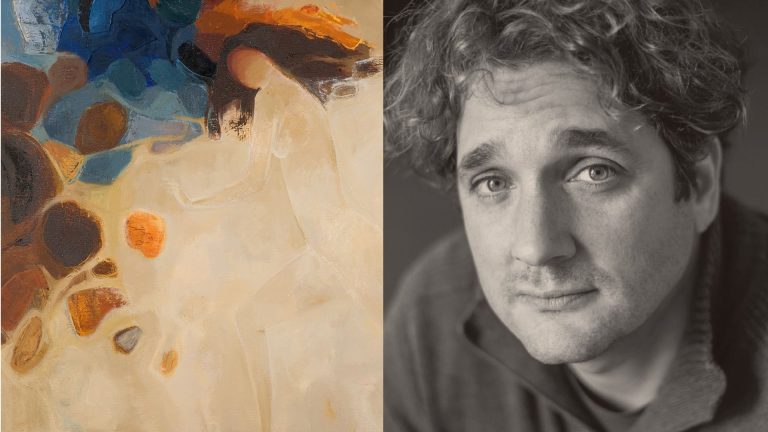Since its opening in 1992, Kempinski Hotel Budapest has been passionately collecting Hungarian artworks to decorate the hotel’s common areas, rooms, and suites. The Corvinus Art Collection now consists of nearly 1,500 pieces. To celebrate its 30th anniversary, the hotel invited five popular contemporary Hungarian writers to spend a night in one of the Corvinus Art Collection Suites and write a short story inspired by the artwork in the suite. The stories have been published in the Kempinski Hotel Corvinus Budapest’s publication Storytelling Suites. Below is the story of Benedek Totth, inspired by Ervin Tamás’s painting.
Benedek Totth: Where It Is Always Spring
She’s standing at the window of a seventh-story suite. The din of the outside world filters in faintly, as if it were transmitting from another world. White hot gondola lights from the Ferris wheel illuminate the room. Her shadow on the wall like a black monochrome.
She watches the rain-soaked silent city, her first time here in many long years. Once it had been her home, but all that remains is a feeling. It had been spring when she was last here. It is spring now. The time between the two spring seasons feels like an eternity, and a single fleeting moment. She had never talked to anyone about it. The words are there, but she can’t voice them.
The wind picks up, and raindrops streak the windows in choppy diagonals, like breath on a very cold day. Yet there’s bustle in the square below, muted people laughing, muted cars gliding, trees swinging mutely in the breeze. A soft, comforting quiet.
Her eyes follow a yellow taxi cab. It pulls up to park before the hotel. A man gets out from the back seat. As the cab drives away, he looks up at the building. His gaze seems to pierce the window. It makes her shudder, even knowing that the seamless windows only show a giant Ferris wheel’s reflection. She wasn’t yet eighteen when she first modeled for a portrait, and still she’s not comfortable with men’s intrusive gazes.

Her feet sink into the pile carpeting, fleece popping up between her toes. She holds her palms against the cold windowpane. Wanting to touch the city, the rain clouds, the dome of the Basilica. She goes to fetch the thick white bathrobe, and puts it on. The smooth feel of the fabric calms her down, makes her feel safe.
She’d left everything behind to leap into the unknown, with no idea what lay beyond. Then it seemed that happiness awaited her on the far side of the world. Everything worked out for her, as they say. Yet something was lost when she left here. Sometimes it felt comforting to think it was the right decision after all, because had she stayed, she would have missed out on all that luck.
It was her husband’s idea to travel. He said it wouldn’t do to see her so sad. So it wasn’t such a secret sadness after all. When he first talked about the trip, she got upset and resisted, perhaps too intensely. She ended up settling for spending Easter here together.
Her real reason for being sad was one she kept to herself. But now for the first time, she felt strong enough to face that man and look him in the eye. Only then can she put the past behind her.

Softly, the door opens. Her husband enters the room, wearing a white bathrobe, arriving from the sauna. He flashes her a kind smile. For a moment that stretches awfully long, she can’t bear to return the smile. She just looks at her husband, wishing she could tell him to stop worrying, that it’ll all be fine. But she can’t speak. Then he steps up and puts his arms around her.
„How was it,” she asks.
„You should try it,” he says.
„When I get back,” she smiles at him.
„Alright,” he says, „I’ll be right here.”
Then she gets dressed, puts on make-up, and turns to leave. Her hand’s on the door handle when she suddenly stops and turns back. The man doesn’t notice, he’s absorbed in the menu, about to order room service, famished. She smiles, then heads out into the hall, quietly pulling the door closed behind her.
She takes the elevator. In the mirror, her figure is multiplied in infinite reflections. She gets out in the lobby. The receptionist shows her to the taxi waiting out front. As they drive off, she looks up at the giant Ferris wheel, feeling giddy.
It’s past midnight when she gets back to the hotel. Carrying a painting wrapped in brown paper, she breezes through the lobby. The elevator takes her to the seventh floor, where she sneaks into the suite without a sound. She takes the painting and hangs it on the wall, then gets into bed beside her husband. He’s snoozing peacefully, chest rising and falling steadily. She snuggles up to him, and feels happiness engulf her. It’s been years since she felt so light. Certain that everything’s going to be okay.
Then she dreams, a first in a long time. In her dream, she steps inside the painting and undresses. She will stay there forever on the wall of that seventh-story suite, where it is always spring.

Benedek Totth (Kaposvár, 1977 – ) is an author, literary translator and editor. His novel Dead Heat (Holtverseny) won Best First Novel Prize at Margó Literary Festival in 2015, and has since been published in English, French, Slovakian, and Romanian. His second book, Az utolsó utáni háború (The War After the War to End All Wars ) was published in 2017 by Magvető Publishing House.











